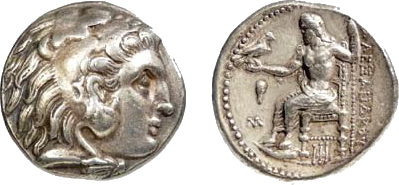From the beginning of his campaign, Alexander foresaw the meaning of the cities. The creation of the new and complete settlement centers consist of a big Greek tradition, which was inherited by many nations. Alexander created more than seventy new cities, which became evidence to his enormous faith to Greek principles and values, that professed.
Alexander established, inter alia, of Aigai and Alexandreia on the coast of the gulf of Issou, Bottia of Orontes river, Arethousa in Syria, Gadara, Pella and to Jerash of eastern Palastine and Jordan, Alexandreia of Egypt. Alexander gave the new cities names of Macedonian cities.
He himself believed that the best way of expansion of the Greek culture was the establishment of cities. At the beginning, the leaders of these cities were Greek that knew the democratic proceeders. The new cities started with 10.000 men, the children were educated in Greek literature and army life, whilst there were civil guards to repel any invasion. The new cities were model politics, citizens, cultural and even trade with temples and gyms, theatres and other of unique beauties.

Silver coin that shows Hercules, mythological headman of the Macedonians, with a lion’s head
The Greek theatres, music schools and public building, stadiums, parliaments and libraries, the temple presented a complete architecture proposal for the environment. Many of these constructions are saved up to today from Asia up to the Arabian peninsula and to Pakistan. Even the ruins show the grand empire and at the head of this.
The new cities were models of city planning for living. They were big harbours that made deveopment easier in sea trade and at times provided economical development and prosperity, changing the centre of economy from livestock to agriculture and giving weight to control floods, irrigation and to the creation of wells.
For example, Alexandreia was the last stop for the products to Egypt, the coast of the Red sea, and Ethiopia, the centre of trade with the countries of the East of Mediterranean, but at Jerash was the market of spicies of Arabia. Trade rose since the empire was a united economy from Greece up to India, where gold and silver coins had real value, that was accepted to all the kingdom and further than that.


